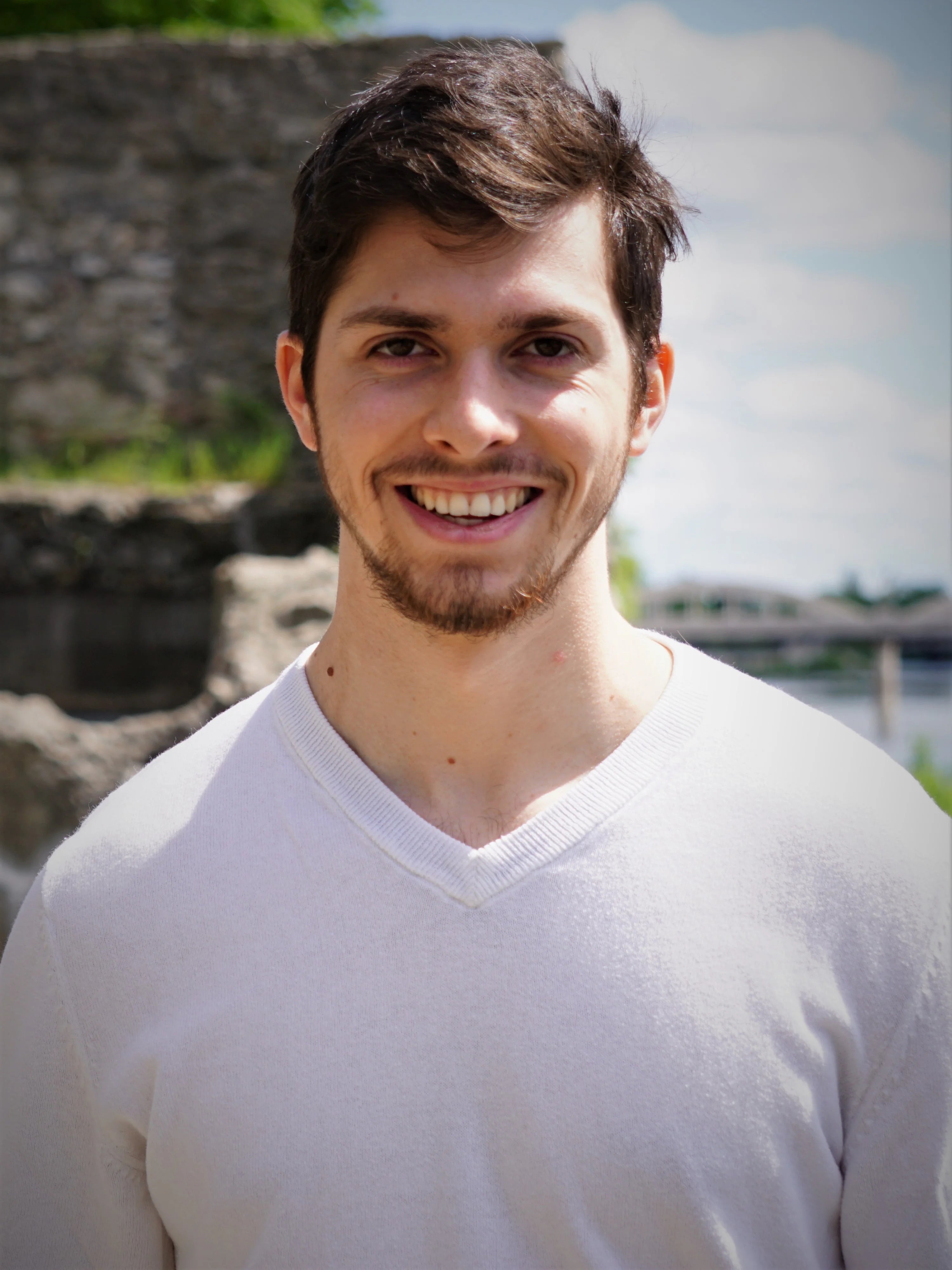Introducing Nicholas
Nicholas Pellegrino completed his Bachelor's of Applied Science in Mechatronics Engineering at the University of Waterloo in 2019.
Following his undergrad, Nicholas moved into the department of Systems Design Engineering where he gain a Master of Applied Science in April 2022. By the next month, Nicholas started pursuing a PhD in Systems Design Engineering at UW.
Nicholas is currently is a PhD candidate and is expected to graduate in 2025.

Writing a master’s thesis
Throughout grad school, Nicholas says writing papers, proposals, and abstracts was daunting and, as is not an uncommon experience, “writing a whole thesis felt nearly impossible”. For Nicholas, the feeling of impossibility didn’t just come from the length of the thesis, but an overarching lack of confidence in both his research and writing abilities, as well as struggles he was facing outside of research and school. All of these combined, meant that at the end of two years of Master’s studies, when he would have normally be expected to be completing his degree, he says “none of my research areas were quite at a state where I could concretely state my results and conclusions. I felt at a loss for what I would even write in my thesis”. However, Nicholas didn’t give up, and neither did his supervisors.
Towards the end of his second year, Nicholas says he made use of Engineering Counselling services, which gave him the help he needed to get to a place where he could fully focus on his work. With the mentorship provided by his supervisor, who always had faith in him, he was offered a higher-level perspective that gave him inspiration and insight for what to include in his thesis. Nicholas then began to create rough outlines, beginning with chapter names, the corresponding sections in the background chapter, and gradually collected details. Going through this process of drafting the thesis helped him to better understand the current state of his research and revealed the gaps and unanswered questions. Nicholas expressed, “I was able to design well-motivated experiments, collect the results I was searching for, finally felt as though I was making substantial progress in my research, and that for the first time, I knew what I was doing”.
Nicholas says that what also helped is that his supervisor, Professor Fieguth, would encourage, and even urge, him to send the next section of his paper in an only semi-completed state to be reviewed. This guided his writing in the right direction and allowed for less revision, all the while building his confidence! Nicholas began to see his progress, recognized his ability to produce good written work, and observed that “progress leads to more progress”. In Nicholas’s words, “[his] master’s was turning into something [he] could be proud of”.
Seeing his progress supported Nicholas in erasing some of his self-doubts, but he also chose to devote time to improving his confidence. He explains that while writing his thesis, he began to read a self-help book called, “You Are a Badass®: How to Stop Doubting Your Greatness and Start Living an Awesome Life”, by Jen Sincero. The act of regularly reflecting on the lessons, concepts, and steps for improvement described therein, quickly lead to improved self-confidence and, in turn, belief in his capability to produce and write a good scientific thesis.
Near the end of his third year, Nicholas gradually found himself deeply emersed in his research and could not decide when to stop pursuing new ideas! He explained, “My supervisor began reminding me that I had done far more than what would normally be expected of a master’s student, which helped me feel proud of my work”. After officially completing his master’s, Nicholas received a huge surprise – despite the many obstacles and challenges he faced, Nicholas received the Alumni Gold Medal for his Master’s!
Advice for other students
Reflecting back on his master’s experience, Nicholas says he wishes he had understood how much work he had actually already done, so he advises other students to just begin writing, “start with what you know, the basic chapters, maybe some sub-sections, and fill-in details wherever you can”. One of Nicholas’s key takeaways is that this regular, incremental progress builds momentum, especially when you get feedback early on.
Finally, Nicholas says “believe in yourself!” You’ve done more research and work than you likely feel you have, and writing can solidify this understanding.